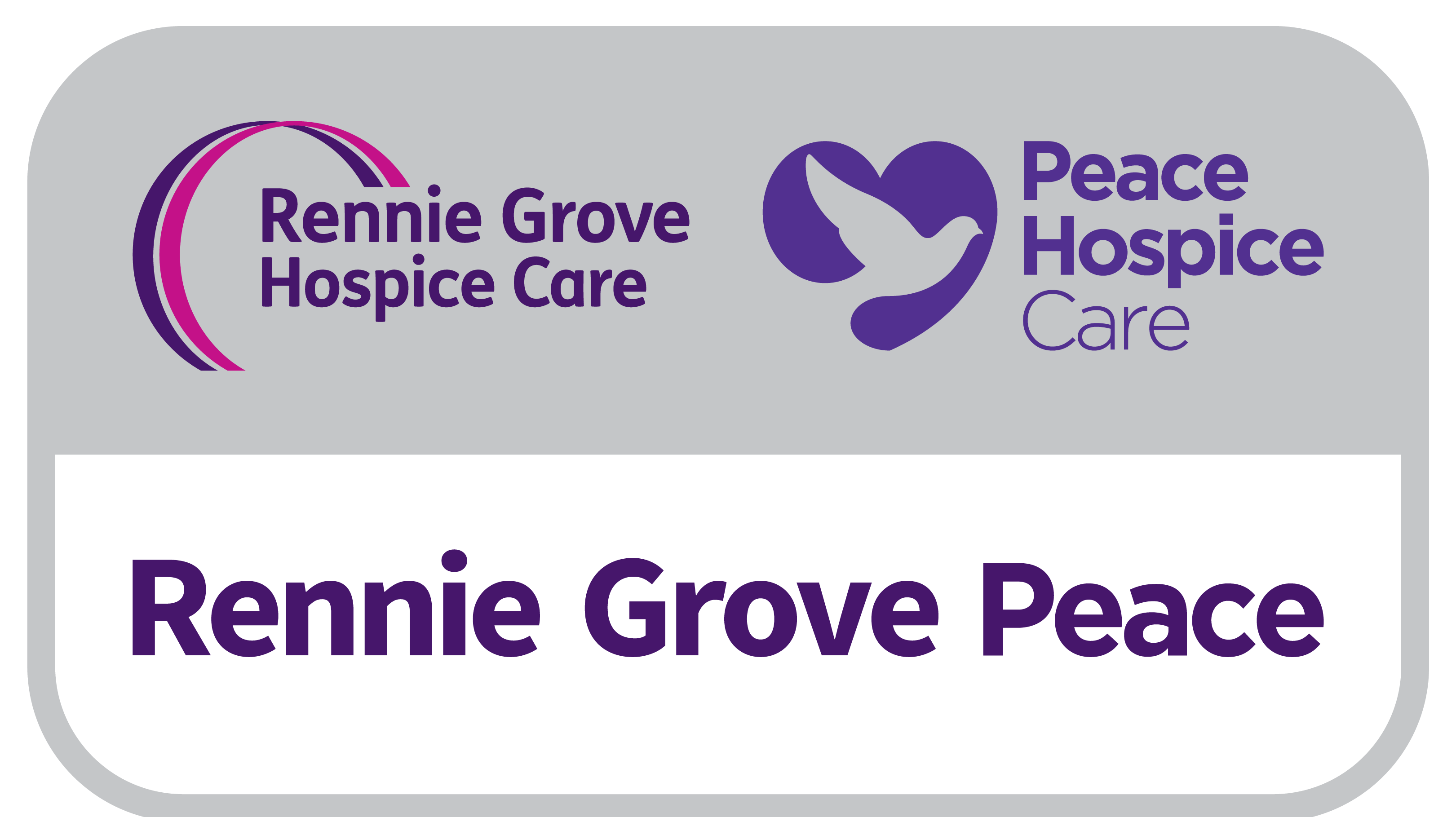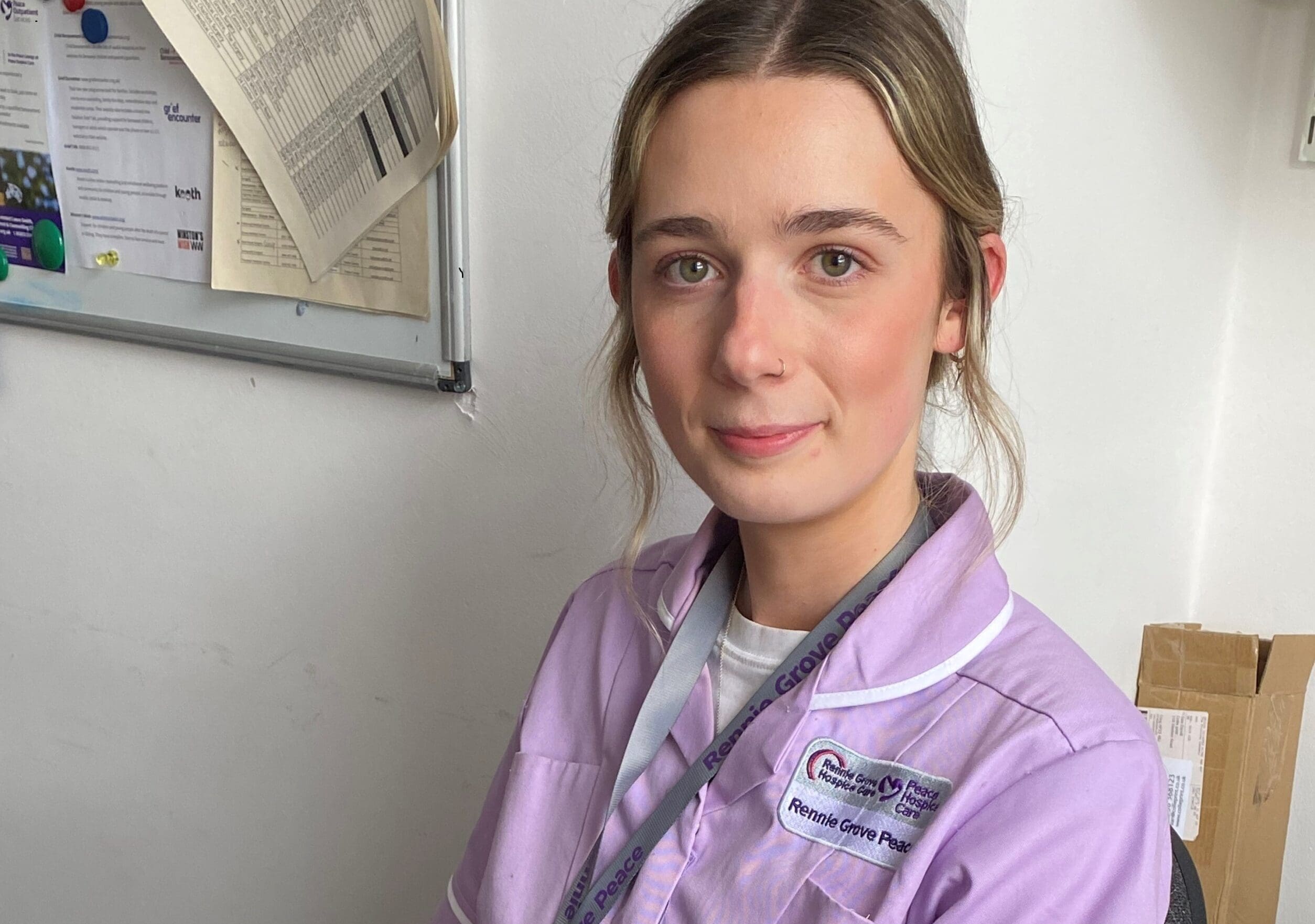Meet Gabriella: Senior Healthcare Assistant
Gabriella is a Senior Healthcare Assistant in our Rapid Personalised Care Service (RPCS) team, joining Rennie Grove Peace in February this year. The RPCS provides care in the home for up to 12 weeks for people approaching end-of-life living in Herts or Bucks. We spoke to her about her role and the impact it makes.
What drew you to applying for a role at Rennie Grove Peace?
“I live locally, and for years and years I’d drive past the Peace Hospice building in Watford and I’d always say, in my head, ‘I am going to work there’. When I left my last role, because I wasn’t enjoying the working from home aspect and missed that interaction, I saw this role and decided to apply, as something had always drawn me in.
“As well as my interest in dementia, I have also always been really interested in end of-life care too. With my experience as a carer, and a volunteer first responder in the ambulance service, I have always been involved with end-of-life care, but wanted to something that was solely end-of-life. “
How would you describe the RPCS?
“It’s a 12-week service, funded by the NHS CHC, where patients can have up to 4 visits a day in four timeslots: morning, lunchtime, teatime and bedtime. We provide personal care – washing, dressing, toileting – for people in their own home at the last 12 weeks of life. The patient must have their initial assessment within 72 hours of the package of care starting – so it is a very responsive service.
How would you describe your role?
“All of the healthcare assistants in the team all go to patient’s homes to deliver our care. As a senior healthcare assistant, I’m also able to carry out the initial assessments, making sure that the package of care is right for them and is started at the right time.”
What is the impact of this service for the patient and their family?
“I think it has a massive impact on them because it allows them the choice of being at home. We always ask what their preferred place of care is and where their preferred place of death is, and our care means we can work to their wishes. It’s very meaningful to be able to go into someone’s house and care for them where they’re in their own surroundings, in their house they may have lived in for 50 years. It’s so important for them to have that personalised care in their own settings.
“It means they can be around their loved ones 24/7, knowing they are where they want to be too. It also takes the pressure and stress of care away from the family and allows them to just be with their loved one, which is really special.”
How many visits does the team make on average each day?
“We’re a team of around 10 carers and we make on average 80 visits on average each day, 365 days a year.”
What do you enjoy about your role?
“Making a difference in someone’s life, at the end of the life. I also love the team aspect – doing the things we do isn’t easy so having a strong team is really important. It feels like you really connect with each other. I also love being in the community – I’ve always worked in retirement villages and care homes and hadn’t previously been out in the community before and I really enjoy it.”
What difference does your team make?
- “It’s so rapid – you can have a referral in the morning and your care begin in the afternoon. To deliver this care as soon as possible when someone is in the last 12 weeks of their life is so important.
- We’re a great team of carers. The communication is amazing and they’re so responsive. There are always eyes on the patient and any changes to the patient’s condition or needs is always shared with the wider team.
- Taking the strain away from the family – because they’re in their own homes, where they want to be. Our care means the family can spend precious time together without worrying so much.”
Watch Gabriella play piano for one of her patients:
She says:
“After a while of knowing this patient I never noticed they had a piano in the corner of the room, as it was always covered with bits and pieces. I mentioned I could play and the patient and her family were really keen for me to play a few songs at the bedtime visit that day. After thinking they had forgotten, when bedtime came around they were still very keen for me to play. I played for the patient, her husband and young daughter. After building a really close relationship with this family since starting my job, it felt so intimate and special to be able to do this for them. I had the patient in tears and so grateful for taking the time to play. But I truly think it meant more to me than the other way round, to be able to give someone that moment and uplift them just brought me back down to earth and made everything I do worth every second.”

